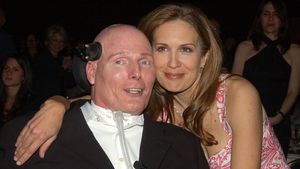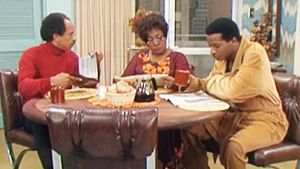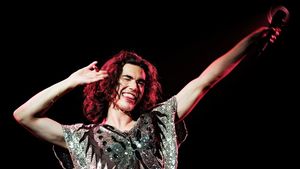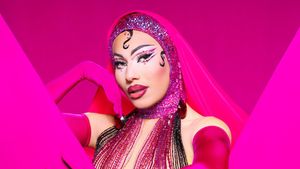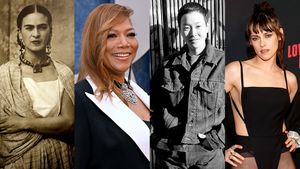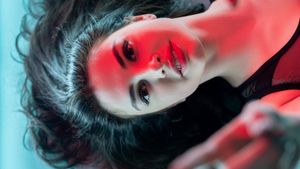This next guest is someone I'm glad to know, see, celebrate, and transform with.
It's a crisp Brooklyn afternoon, and Gatekeeper Adrian is ensconced in their favorite interview spot. A mural-covered nook where even the background feels like it has something to say. They lean forward, eyes bright, ready to dive into the tapestry of their work, interwoven with history, resilience, and unapologetically Black trans and queer existence.
In every brushstroke and camera angle, Adrian captures the intersectional complexities of identity, a march forward while honoring the past, a message of power in representation and visibility.
The Birth of Rochester Black Pride
Adrian's history as an "artivist" and organizer was forged in the fires of 2014, during the Black Lives Matter movement following the death of Michael Brown. At the time, Adrian took notice the LGBTQ+ scene in their Rochester, NY community was overwhelmingly–and catered to–a white audience.
"There's a history here," Adrian muses. "LGBTQ+ rights wouldn't exist without Black and Brown trans women, but when we look around, our stories are marginalized… We're invited to sit at their tables, but why would we settle for that?"
This realization birthed Rochester Black Pride, a celebration intentionally crafted to center the voices and experiences of Black, Brown, queer, and trans communities. This resolve and an uncompromising vision for self-representation have influenced successive projects at the intersection of art and activism. For Adrian, there's no time to sit and wait for mainstream platforms to amplify marginalized voices.
They're creating spaces where those voices are the main event.
A Painter of Stories
From the hand-painted murals to the short films that adorn the Gatekeeper's portfolio, art is as much an aesthetic pursuit as it is a mirror, a megaphone, and a lifeline. Art, they say, is a way to document the joy, the struggle, and the rich, vibrant lives of Black, trans, and queer people.
Adrian's pride shines through when they discuss their work for the Stonewall National Monument Visitor Center. Tasked initially with a time-lapse video of construction, they saw a story demanding to be told, one centered on the often-overlooked contributions of Black and Brown LGBTQ+ activists. "They say we're on the margins," Adrian laughs, "but it's our stories that are the foundation.
From Compton's Cafeteria to the Stonewall riots, Black and Brown trans & queer people have been at the forefront of LGBTQ+ liberation. Adrian's role at Stonewall allowed them to lift these narratives and, as they put it, "center the center," making sure that Black and Brown trans people are honored not just as part of the backdrop but as essential to the heartbeat of the ongoing movement.
Reimagining Cultural Icons
One of Gatekeeper's recent projects was reimagining the classic '90s sitcom Living Single, only this time, the main female characters were Black trans women. Brought to life by the brilliant minds at the Black Trans Femmes in the Arts (BTFA) Collective, this project was part of an annual Halloween series where Adrian and BTFA take iconic pop culture moments and give them a Black trans twist.
"My good girlfriends suggested it, and I was all in," they beam. Recreating the intro was no small feat: they had to hunt down fonts and graphics to evoke the sitcom's essence–details. Though it sounds like an easy task, Adrian admits these were not easily accessible; for many Black pop cultural media, finding similar fonts and aesthetics is an endeavor compared to the likes of I Love Lucy and Mary Tyler Moore Show.
But that's the magic in Adrian's work. They don't just reimagine–they reclaim, rebuild, and rejoice in Black trans representation.
"You watch these scenes, and you realize how important it is to see four Black trans girlfriends in their 20s and 30s living in New York, dealing with the comedy and chaos of life," Adrian says. They believe a vision of sisterhood and celebration is crucial for visibility.
And it's just as crucial for Black trans joy.
The Power and Struggle of Funding
Of course, creating these groundbreaking projects comes with its own challenges, and one of the biggest hurdles, Gatekeeper plainly says with a rueful smile, is funding. "I'm a Capricorn," they laugh, "so you know I'm going to say money!" They've built a world on passion, community, and a fierce commitment to Black queer excellence and representation, but funding remains an ongoing struggle. Finding resources to elevate these voices can be a near-impossible task in an industry that often overlooks new and transformative narratives.
"We're not lacking talent," Gatekeeper asserts. "What we lack is access. We can create amazing narratives, but systematic barriers, algorithms, and a lack of funding make it challenging to reach a wider audience." Adrian dreams of a day when projects that center on Black trans and queer experiences are just as well-funded and widely distributed as Hollywood's sequels and reboots.
But these barriers don't cause them to sit idle: Gatekeeper Adrian continues to build networks, foster collaborations, and make art that refuses to be ignored.

Courtesy Gatekeeper Adrian
Words of Wisdom for Budding Queer Artists
As always, I ask each individual I interview what one piece of advice they'd offer those in their position, personal or otherwise. Ever-so-Adrian, they offer two pieces of advice. "One," they begin thoughtfully, "you're not the first." They emphasize the importance of looking to those who've come before, learning from their battles, and building on their triumphs. And two: "Just do it," they exclaim, "The vision in your head? Make it real. That thing that's haunting you? Get it out. Tell your story, because no one else can do it like you."Paradoxically, the Gatekeeper isn't limiting access. Each project, each mural, and each film they create is a testament to their drive and a love letter to the communities they uplift and celebrate.
Gatekeeper Adrian is part of a powerful lineage of Black trans and queer creators carving a path not just for themselves but for a new generation of storytellers who will pick up the camera, the brush, the pen–or the keyboard–and continue to create.
Voices is dedicated to featuring a wide range of inspiring personal stories and impactful opinions from the LGBTQ+ and Allied community. Visit pride.com/submit to learn more about submission guidelines. We welcome your thoughts and feedback on any of our stories. Email us at voices@equalpride.com. Views expressed in Voices stories are those of the guest writers, columnists and editors, and do not directly represent the views of PRIDE.com or our parent company, equalpride.


